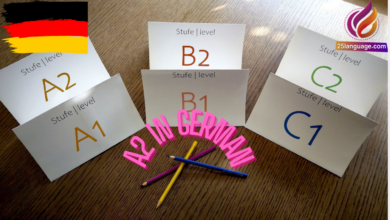Learn about German Possessive Adjectives

German Possessive Adjectives
You will learn now about German possessive adjectives , Look at the following sentences :
- Karl : Ja . Und danach bringst du mich auf deinem Motorrad zu meiner Wohnung .
Which translates :
- Carl : ‘Yes . And after that take me on your motorcycle to my apartment’ .
The sentence demonstrates two of the possessive adjectives . These are (singular) ‘my’ , ‘your’ , and ‘his/her/its’ in English and mein , dein , and sein/ihr/sein in German . Note that because these are adjectives , the word ending must reflect the case and gender of the noun being modified .
In German , the genitive case correspond to the English possessive case or to the objective case proceeded by of to denote possession . If the possessive is not followed by a noun , it becomes a possessive pronoun . In general , possessive pronouns are rather rarely used in German ( see pronoun tables) :
| NOM. | ACC. | DAT. | POSS. ADJ. | |
| I, me | ich | mich | mir | mein |
| you | du | dich | dir | dein |
| he, him | er | ihn | ihm | sein |
| she, her | sie | sie | ihr | ihr |
| it | es | es | ihm | sein |
| we, us | wir | uns | uns | unser |
| you (all) | ihr | euch | euch | eurer |
| they, them | sie | sie | ihnen | ihr |
| you (formal) | Sie | Sie | Ihnen | Ihr |
The pattern in the case endings of the possessive adjectives is that seen in for the word ein . We can generalize these endings as in the following table , where we can express plural endings because other so-called ein-words do have plurals :

The small group of words that take these endings (in addition to ein) includes the possessive adjectives and kein (“not any” or “no” in the sense of none) .




























